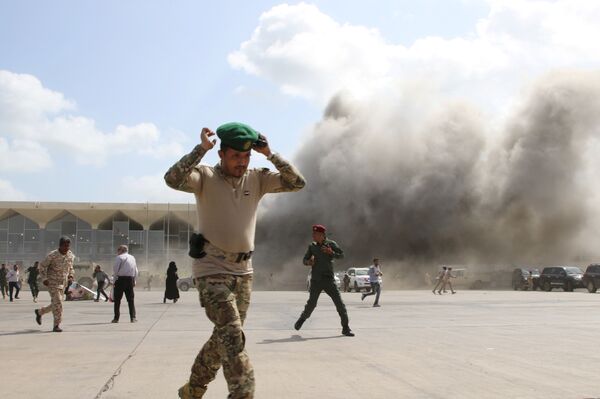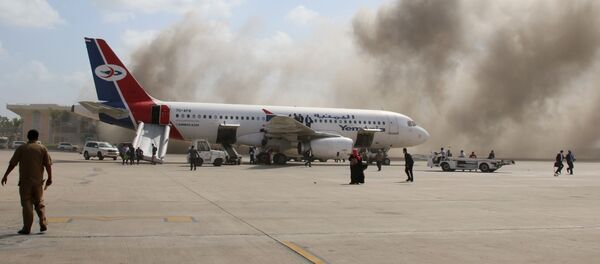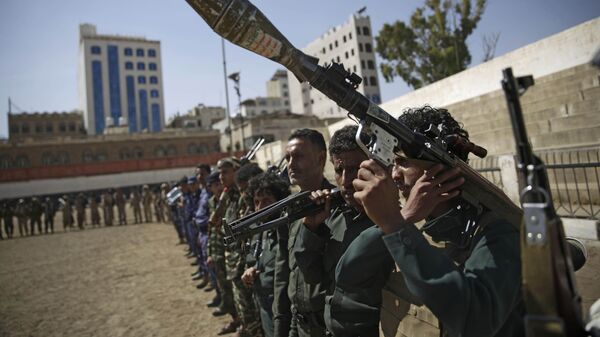Washington's intention to label the Houthis as terrorists could have negative consequences for the Yemeni peace settlement, Russian Foreign Minister Sergei Lavrov has said.
Speaking at a press conference after meeting with Saudi Foreign Minister Faisal bin Farhan Al Saud on Thursday, Lavrov said that he hopes a political settlement in Yemen is not affected by the State Department's decision.
"But many, including representatives of the UN, are expressing fears that a negative effect may appear," Lavrov said.
Faisal, meanwhile, expressed confidence that the move would not hamper a prospective Yemeni peace settlement. "We believe that this decision was made, first of all, not because of specific developments but because of the situation and the attacks by the Houthis against civilian objects and civilians in Yemen and elsewhere, as well as their other hostile actions. All these actions by the Houthis drove the US to make this decision," the foreign minister said.
Terror Designation
US Secretary of State Mike Pompeo announced on Sunday that the State Department would be adding the Houthis to its list of terrorist organisations, simultaneously branding three of its leaders as "Specially Designated Global Terrorists."
On Monday, United Nations spokesperson Stephane Dujarric warned that the designation would dramatically worsen the humanitarian situation in Yemen, and called on Washington to "swiftly grant the necessary licenses and exemptions to ensure that principled humanitarian assistance can continue to reach all people" in Yemen, including areas under Houthi control.
Houthi leader Mohammed Ali al-Houthi decried the US move, saying Yemenis "don't care about any designation" by Washington, and calling the Trump administration a "partner in killing Yemenis and starving them." Al-Houthi added that the group reserves "the right to respond." The Saudi-backed government in Yemen praised the designation.
The US designation follows the late December missile attack on Aden Airport during the arrival of a new Saudi-backed coalition government in the temporary capital. Over two dozen people were killed and more than 50 injured in the strike. The government immediately blamed the Houthis for the attack. The Houthis denied responsibility and accused the Saudis of perpetrating the false-flag attack against the "government of Riyadh's mercenaries."

The attack took place moments after the plane carrying the new cabinet, made up of ministers from both the government of Saudi-based exiled president Abd Rabbu Mansour Hadi and the Southern Transitional Council – a United Arab Emirates-backed separatist government in Yemen's south – arrived in Aden following the striking of a power-sharing deal in Riyadh.

The Houthis are designated a terrorist group by Saudi Arabia, the UAE, and Malaysia. Other countries, including the US, have long hesitated to issue such a designation, pointing to the Houthis' control of major population centres and expressing concerns that a terrorist label might lead to a cut-off in much-needed humanitarian aid.
The war in Yemen has killed over 233,000 people, both in fighting and as a result of the humanitarian crisis caused by the blockade. The UN estimates that up to 75 percent of Yemen's population is in dire need of food and other humanitarian aid.


